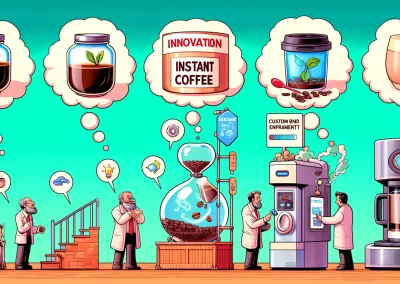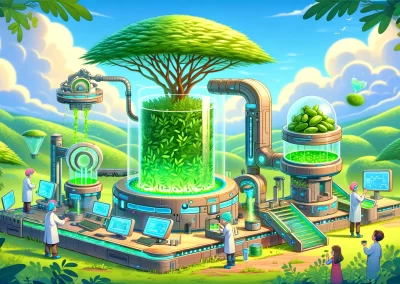The strong kick from a cup of coffee may not be enjoyed by everyone. Some people may not enjoy the intense flavor or the caffeine jolt that comes with it. Others might find it too bitter for their taste. But for some, the strong flavor of coffee is something to savor and enjoy. Some people can’t drink coffee without feeling dizzy. And if you are one of them, continue reading as we will explain why this dizziness happens.
Why do I feel weird when I drink coffee?
Each of us has different metabolism that breaks down caffeine and other coffee compounds. This means that caffeine and other coffee content are felt at different level. Consuming caffeine can make your heartbeat faster, can make you agitated and nervous, and can make your blood pressure rise. This is caffeine’s stimulating effect, but if you feel any dizziness after consuming coffee, this can mean that you are sensitive to caffeine.
If you are caffeine sensitive, you’ll have one or more of the below symptoms:
- Abnormal and irregular heartbeat
- Palpitations
- Diarrhea
- Restlessness
- Muscle spasms or jitters
- Anxiety, uneasiness, and nervousness
- Hot flashes or high body temperature
- Headache or migraine
What is caffeine sensitivity?
Everyone is sensitive to caffeine but at different level or degree. Oversensitivity means that right after drinking coffee you experience adverse effects, which are listed above. Caffeine is bound to neuroreceptors that are normally attached to a neuromodulator called adenosine which under normal conditions are responsible for drowsiness and the feeling of arousal.
How caffeine affects the nervous system and brain
As soon as your body metabolizes and breaks down caffeine, it reaches the brain and takes preference. Adenosine is now no longer available and wakefulness follows. Alertness and elevated mood will also increase. However, if you are caffeine sensitive, you will feel the effects much stronger. A few sips of instant coffee can bring on a rush like you are drinking several shots of espresso.
How long coffee lasts in the body
Caffeine remains in our body for a long time after you finished a cup of coffee. Caffeine has a half-life of 5 hours meaning half of it is still in our body even after 5 hours. A regular coffee drinker that is not sensitive to caffeine can still the effects of their 4pm coffee at 10pm. While over-sensitive people will have caffeine in their system for a longer period of time making them immediately dizzy if they consume a second cup.
Caffeine Intolerance/Sensitivity
The caffeine metabolism rate is unique to each individual and is determined by their metabolism. The effects of coffee vary from person to person, and the caffeine stays in each individual’s system for a different duration. People who have a low tolerance for caffeine or are extremely sensitive to coffee metabolize the caffeine much more slowly than others.
A lot of side effects are felt due to the caffeine being present in the body for longer period of time.
There is a wide range of caffeine sensitivity among people, which is largely determined by genetics. Some people are hypersensitive to caffeine and experience side effects even from small amounts, while others have a high tolerance and can consume large amounts without any adverse effects. Most people fall somewhere in the middle, with normal sensitivity to caffeine.
Causes Of Caffeine Sensitivity
There are several reasons for caffeine sensitivity.
- Women are known to metabolize and break down caffeine faster than men. Making men more sensitive to caffeine and are more likely to feel the side effects.
- The older you get, the longer your body metabolizes caffeine.
- Birth control and other medications or treatments that interfere with estrogen production can also increase your sensitivity to caffeine.
- Not drinking coffee can also increase the risk of not forming tolerance hence making you sensitive as well.
Caffeine Allergy
An extreme reaction to drinking even the slightest amount of coffee can be caffeine allergy and not caffeine sensitivity. If you are allergic to caffeine you might experience the following symptoms:
- Chest pain
- Flushing and Cold sweats
- Anxiety and jitters
- Dizziness or lost of balance
- Fatigue
- Irregular heart beat
- Anxiety
- Increase urge to urinate
- Diarrhea
If you think you are allergic to caffeine, visit and consult a doctor immediately to verify it. Avoid caffeine all together if you are allergic since these kinds of allergies can be life-threatening.
How to stop feeling dizzy?
For a lot of people, the key to stop feeling dizzy is to drink your coffee with breakfast instead of making it your only breakfast. This way, you will be metabolizing something substantial other than coffee. Here are other ways to stop the dizziness after consuming coffee.
Reduce coffee intake
If you can’t stop drinking coffee all together, you can slowly lower your coffee intake. This is to ensure you will not experience caffeine withdrawal which can cause headaches and other withdrawal symptoms.
Try a different roast of coffee with less caffeine. Dark roast coffee has lower caffeine content making it perfect if you are sensitive to caffeine. Adjust the number of cups you take per day. Once you feel the dizziness and restlessness, you should not consume another cup. Limit your intake as much as you can. Monitor how much coffee can you take per day and what kind of coffee you take.
Drink a darker roast
As mentioned above, dark roast coffee have lower caffeine content, meaning consuming this type of roast will reduce your caffeine intake making you less prone to dizziness.
Drink more water
Drinking water while you drink your coffee can balance out how your body metabolizes caffeine. It should even out the uncomfortable effects of caffeine. Stay hydrated and drink lots of water.
Eliminate coffee
Removing coffee from your everyday routine is the top recommendation from health professionals. The extreme sensitivity that you are feeling is mostly an indicator that your metabolism is getting stressed with caffeine consumption. If you ever decide to stop drinking coffee we advise doing it gradually to avoid coffee withdrawals and its nasty side effects. You can also try drinking decaffeinated coffee to avoid any withdrawal symptoms.
Participate in regular exercise
Regular exercise has a lot of great benefits not just for your metabolism. Try to squeeze some exercise in your everyday routine to help improve your metabolism and health.









